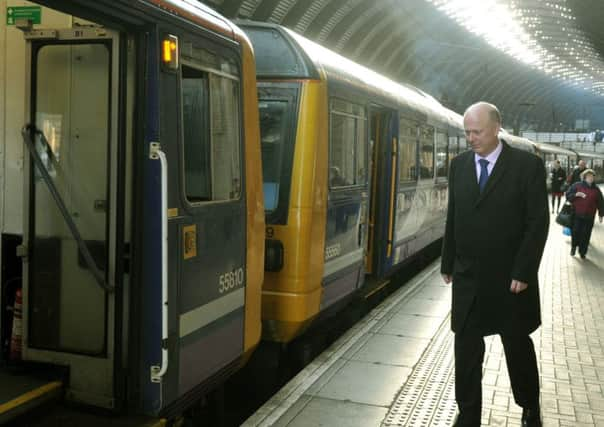Ed Cox: Long road ahead for North's transport


Transport is by no means the only driver of economic productivity, but good connectivity is a necessary if not sufficient condition for competitiveness in the global economy. Transport has also become emblematic of the so-called Northern Powerhouse project.
The fact that it takes longer to get from Liverpool to Hull than it does to travel from London to Paris tells us a lot about the state of inter-city connections in the North, but intra-regional connections are also abysmal and are a key reason why many Northern towns struggle to transition from their proud industrial pasts.
Advertisement
Hide AdAdvertisement
Hide AdIt beggars belief that it can take over an hour to get from Middlesbrough to Newcastle or Burnley to Manchester by car or train over distances no longer than 30 and 40 miles respectively, and that there are barely two trains per hour. Poor connectivity diminishes access to markets and skilled labour and drags down Northern productivity.
At a simple level, it is easy to point to under-investment as the main reason for such poor transport links. Few can dispute the fact that, in recent decades, public and private investment in transport infrastructure in London and the South East has dwarfed that spent in the North.
Using official ONS public sector finance expenditure tables which present historic transport spending region by region, public spending alone was on average £282 per head in the North compared to an average of £680 per head in London over the last 10 years. This equates to a £59bn historical spending gap.
Future spending is more contentious, with Transport Secretary Chris Grayling insisting that the current Government has reversed this trend. We will soon publish a new, independent analysis of the latest National Infrastructure Pipeline, clearly explaining the methodology used by Government and ourselves at IPPR North and allow the public to decide for themselves.
Advertisement
Hide AdAdvertisement
Hide AdBut there is a risk that this pre-occupation with spending might miss a more fundamental point. One of the primary reasons given for historical spending disparities has been that London has had more ‘shovel-ready’ projects primed for investment. Little wonder.
Thanks to the office of the Mayor of London and Transport for London, the capital city has had the independent capacity to develop ideas for major investment – something that has only been possible in the North since Transport for the North came into being back in 2015.
In the three short years since it was established, Transport for the North has made significant progress and a draft Strategic Transport Plan will go out for wider consultation later this month.
This is where the rubber will almost literally hit the road. Not only will the travelling public begin to envisage the kind of transport improvements they have long yearned for, but equally pressure will grow on Government to put more money where its mouth is.
Advertisement
Hide AdAdvertisement
Hide AdThe oft-cited £13bn – some of which was committed even before 2010 – is but a tiny part of what will be needed into the future. In fact, the £59bn London has received over the past decade would not be an unreasonable claim as ‘catch-up cash’ for the North.
However Transport for the North, unlike Transport for London, will not have the fiscal powers it needs to match public and private investment as London has done so successfully with Crossrail nor the revenues it generates through service provision. Transport for the North must find its own development path, but without its own fiscal powers it will forever be in hock to the Department for Transport and its national agencies.
In a speech to Northern leaders in August 2017, Grayling stated: “I want the North to take control.” Last week in Parliament, we passed a significant milestone in that quest, but the truth is that there remains a long journey ahead and Government must get better used to letting go. If it’s good enough for London, it’s good enough for Northern leaders, too.
Ed Cox is the director of IPPR North. A full version of this article first appeared on the ConservativeHome website.